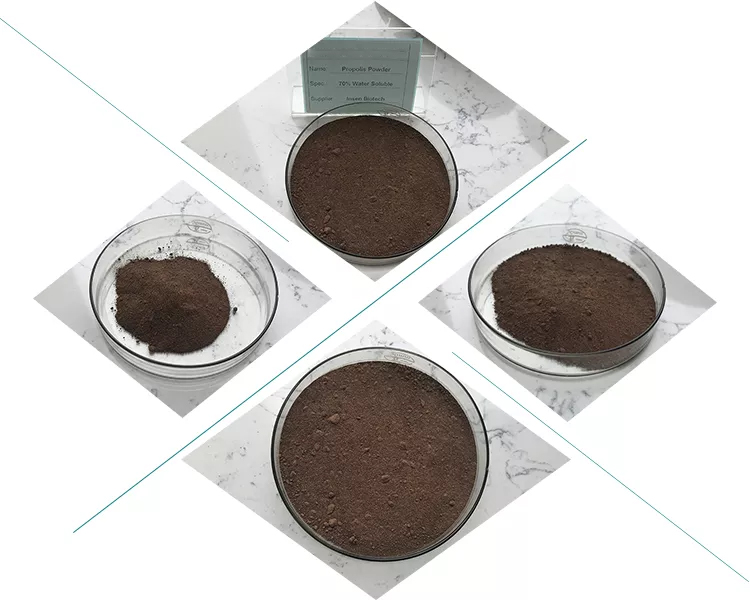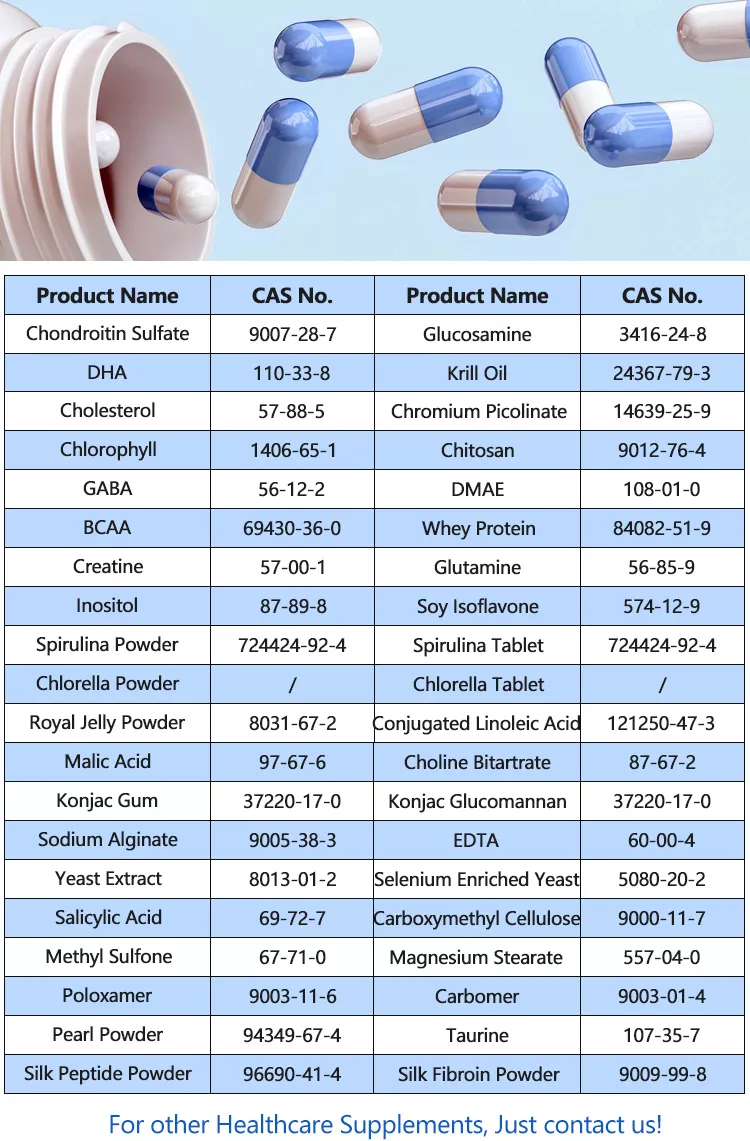Propolis powder is a natural resinous substance collected by honeybees from various plants, and it is used by bees to seal and protect their hives. It is known for its potential health benefits and is often used in herbal remedies and dietary supplements. The basic ingredients of propolis powder include:
Resins: Bees collect sticky resins from the buds and bark of trees, such as poplar, pine, and conifer trees. These resins form the primary component of propolis and contribute to its adhesive and protective properties.
Beeswax: Bees mix the collected resins with their own beeswax to create a malleable and durable substance. Beeswax helps bind the other components of propolis together.
Pollen: Propolis may contain traces of pollen that bees bring into the hive. The presence of pollen can vary depending on the source plants and the specific collection by the bees.
Essential Oils: Propolis contains a variety of essential oils that contribute to its aroma and potential medicinal properties. These oils are derived from the plant resins.
Vitamins and Minerals: Depending on the source of the resins and the local flora, propolis may contain small amounts of vitamins (like B vitamins) and minerals (such as magnesium and calcium).
Flavonoids and Polyphenols: These natural compounds found in plants are often abundant in propolis. They are believed to contribute to its antioxidant and anti-inflammatory properties.

Enzymes: Bees may add enzymes to the propolis mixture, which can help with the transformation and preservation of the collected resins.
Antibacterial Compounds: Propolis contains compounds that bees use to protect the hive from bacterial and fungal infections. These compounds can potentially provide some antibacterial and antifungal benefits for humans as well.
Plant Compounds: Depending on the geographical location and the specific plants in the area, the composition of propolis can vary significantly.
It’s essential to note that the exact composition of propolis can vary depending on the location of the beehive, the types of plants in the area, and the specific bees involved in its production. Propolis can be purchased as a supplement in various forms, including propolis powder, capsules, tinctures, and creams, and it is often used for its potential health benefits, which include immune support and wound healing.
Application of Propolis Powder
Propolis is a resinous substance collected by honeybees from various plant sources, and it has been used for centuries for its potential health benefits. Propolis powder, a concentrated form of propolis, can be used in various ways due to its potential antibacterial, antiviral, antifungal, and anti-inflammatory properties. Here are some common applications of propolis powder:
Dietary Supplement: Propolis powder can be encapsulated or mixed with other supplements to create dietary capsules or powders. Many people take it as a natural supplement to support their immune system and overall health.
Throat and Oral Health: Due to its antimicrobial properties, propolis powder can be used to make throat sprays, lozenges, or mouth rinses. It may help alleviate sore throats, mouth ulcers, and other oral health issues.

Skin Care: Propolis can be added to creams, lotions, or serums for its potential skin-soothing and healing properties. It may help with conditions such as acne, eczema, and minor wounds.
Wound Healing: Propolis powder can be applied topically to minor cuts, scrapes, or burns to promote healing and reduce the risk of infection.
Hair Care: Some hair care products include propolis powder for its potential benefits for hair and scalp health. It may help with dandruff, hair growth, and overall scalp health.
Tinctures and Extracts: Propolis can be made into tinctures or extracts by dissolving it in alcohol. These extracts can be taken orally or used topically for various health purposes.
Cough Syrups: Propolis is sometimes included in cough syrups and herbal remedies to help soothe throat irritation and reduce coughing.
Immune Support: Propolis is believed to have immune-boosting properties. Some people take propolis powder to support their immune system, especially during cold and flu seasons.
Antioxidant Properties: Propolis contains antioxidants that may help combat oxidative stress and reduce inflammation in the body. It can be consumed as a part of an antioxidant-rich diet.
Nail and Cuticle Care: Some nail products incorporate propolis to strengthen nails and promote healthy cuticles.
When using propolis powder, it’s essential to follow the recommended dosage instructions, as excessive consumption can lead to side effects. Also, if you have allergies or are sensitive to bee products, it’s advisable to consult with a healthcare professional before using propolis in any form. Additionally, the quality and purity of the propolis product you choose can significantly impact its effectiveness. Always purchase from reputable sources to ensure the best possible benefits.
